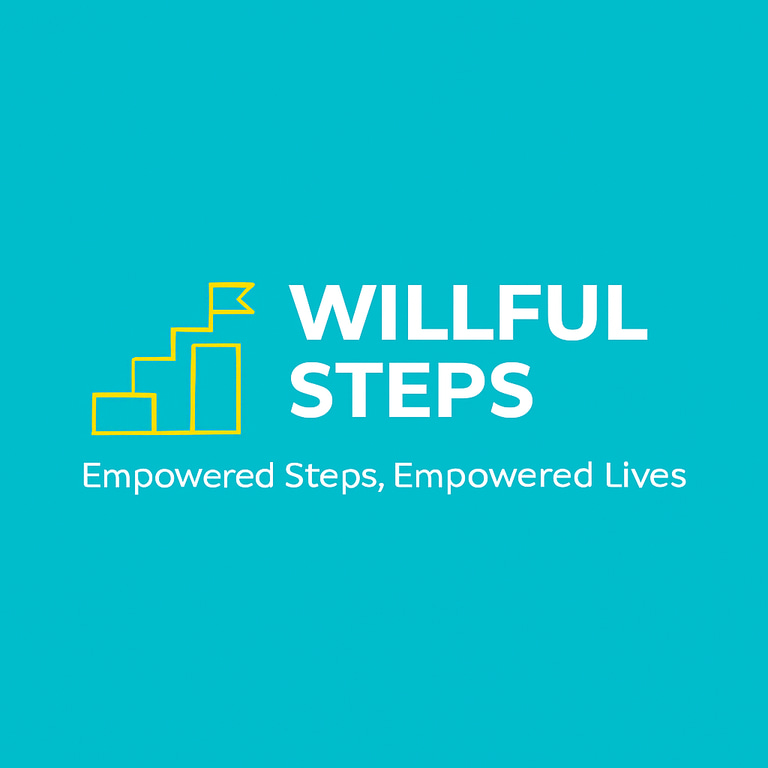A Breath of Fresh Air: What the NHS ADHD Taskforce Report Means for Australian Neurodiverse Families
It’s a powerful validation of what so many of us have known and advocated for, for far too long.
Michael J Perez
6/21/20254 min read


Reading the interim report from the NHS ADHD Taskforce felt like a cool breeze on a hot Aussie day.
It’s a powerful validation of what so many of us have known and advocated for, for far too long. While this report hails from the UK, its key insights resonate deeply with the challenges and aspirations of our families right here in Australia.
Let's Unpack What These Key Points Mean For Us... and why there's reason for cautious optimism
Firstly, the report’s emphatic declaration that ADHD is a cross-sector issue, not health alone, is music to my ears. For years, families have been bounced between health services, schools, and social support systems, each operating in their own silo. It’s like trying to bake a cake with the flour in one pantry, the sugar in another, and the oven in a third – it just hasn't work.
This report acknowledges that a child's or adult's ADHD journey impacts every facet of their life – their learning, their relationships, their emotional well-being, and even their interactions with the justice system.
For Australian families, this is a call for our own government departments to sit at the same table, to coordinate policies, allocate budgets holistically, and share data. Imagine a world where a child’s school, their GP, and any support services are all on the same page, working together seamlessly.
That’s the dream, and this report tells us it’s achievable.
Early Needs-Led Support
Then there’s the emphasis on early, needs-led support. This is perhaps one of the most transformative points.
How many times have I heard from parents the heartbreak of seeing their child struggle, knowing deep down something is different, but being told they can’t get support until a formal diagnosis is made?
The waiting lists, as we know all too well in Australia, can stretch for months, even years.
During this crucial time, children miss out on vital interventions, leading to increased anxiety, behavioural challenges, and a feeling of being misunderstood. The report’s recommendation to offer practical help – like coaching, classroom tools, and parenting advice – before or during assessment waiting times, is truly game-changing.
This is about stepping in early, nurturing strengths, and providing practical strategies based on observable needs, not just a label. It's about empowering parents with tools while they navigate the diagnostic maze, and supporting children in their learning environment from the get-go.
The Unsustainable Specialist Model
The taskforce’s stark assessment of an unsustainable specialist model also hits home.
We see it daily: our overwhelmed paediatricians and psychiatrists with waiting lists that are simply unmanageable. The current system, heavily reliant on a small pool of specialists, often leaves families feeling stranded. The report calls for a holistic, stepped, joined-up generalist approach, which means better resourcing for our GPs, local councils, and community organisations.
It’s about building capacity across the board, so that initial support can be accessed more readily, with specialists reserved for those who truly need complex intervention or where initial support hasn’t been effective. This could be a lifeline for regional and remote Australian families who often face even greater barriers to accessing specialist care.
Addressing Long Waiting Times
And speaking of waiting lists, the report's focus on addressing long waiting times and the emergence of a "two-tier" private system is something we grapple with every day.
The financial burden of private diagnoses and ongoing care in Australia is immense, creating an inequity where only those with means can access timely support. This report highlights the urgent need to rectify this, advocating for a system where access is based on need, not on the size of your bank account.
It’s a call to action for our Australian healthcare system to invest in training more clinicians, developing multidisciplinary teams, and creating more accessible pathways. Recent moves in NSW to allow GPs to treat ADHD after specialist stabilisation are a step in the right direction, but much more is needed nationally.
Digitisation and Data Improvement
The push for digitization and data improvement might sound a bit dry, but its implications are profound. Imagine a system where our health services could track ADHD referrals and waiting times, identifying bottlenecks and areas for improvement. This kind of data would be invaluable for service planning and ensuring quality care, helping to combat both under-diagnosis and misdiagnosis. It means a smarter, more efficient system that could truly benefit families in the long run.
No Evidence of Over-Diagnosis
Crucially, the taskforce found no evidence of over-diagnosis. This is a powerful antidote to the harmful narratives that sometimes circulate. For neurodiverse families, this validation is immense. It reaffirms that what we are experiencing is real, that our children's challenges are genuine, and that seeking support is not about "labelling" but about understanding and empowering. In fact, the report points out that England's recognition and treatment rates are lower than many other European countries, which likely mirrors our own situation in Australia.
There are still too many individuals struggling silently because their ADHD goes unrecognised.
In Conclusion
Finally, the report reinforces the importance of schools and the prevalence of co-occurring conditions. Schools are often the first place differences are noticed, and empowering educators with training to understand and support neurodiverse students is absolutely vital. The acknowledgement that ADHD rarely travels alone – often co-occurring with autism, learning difficulties, and mental health challenges – underscores the need for genuinely integrated and holistic care, not just a focus on one diagnosis.
What does all this mean for us, here in Australia?
It means we have a robust, evidence-based roadmap for advocacy. It means we can point to this report and say, "Look, this isn't just us; this is a global challenge, and here are the solutions." It means continuing to advocate for government investment in early, needs-led, cross-sector support. It means pushing for better training for our GPs and educators. It means working towards a future where every neurodiverse child and adult in Australia has the opportunity to thrive, regardless of where they live or their family's financial situation.
The journey won't be easy, but with this report as a compass, we have a stronger sense of direction and renewed hope. As parents, let’s hold onto that hope and continue to be the powerful advocates our incredible neurodiverse kids deserve.
References:
NHS England. (2025). NHS England responds to ADHD Taskforce interim report.
Healthwatch. (2025). Our response to the independent ADHD Taskforce's report.
Brain Foundation. (n.d.). Attention Deficit Hyperactivity Disorder (ADHD).
The Royal Australian and New Zealand College of Psychiatrists (RANZCP). (n.d.). ADHD across the lifespan.
healthdirect. (n.d.). Attention deficit hyperactivity disorder - ADHD symptoms, causes and diagnosis.
NSW Government. (2025). Game changing reforms allow GPs to treat ADHD to reduce wait times and costs.
RACGP. (2025). ADHD treatment access a 'postcode lottery'.
Kantoko. (n.d.). Adult ADHD Diagnosis in Australia: Assessment, Costs, Wait Times & What to Expect.
Willful Steps
Unlock the potential within your team, clients and community.
Focus
Thrive
michael@willfulsteps.com
0434 318 542
© 2025. All rights reserved.
DISCLAIMER
The information contained on this website and provided through our coaching and training services is for general informational and educational purposes only.
Not Professional Advice The content on this site does not constitute legal, financial, medical, psychological, human resources, or professional advice. Nothing on this website creates a coach-client relationship. Always seek the advice of qualified professionals regarding your specific circumstances.
No Guaranteed Results Individual results from coaching and training vary significantly based on personal circumstances, effort, and implementation. We do not guarantee specific outcomes, behavioural changes, career advancement, or organisational improvements.
Neurodiversity Information Information about neurodivergent conditions (ADHD, autism, dyslexia, etc.) is general in nature and not diagnostic. We do not provide medical diagnoses or treatment. Consult qualified medical professionals for assessment and treatment of neurodevelopmental conditions.
Workshop Content Our workshops and training materials are designed for educational purposes. Implementation of strategies discussed is at the discretion of participants and their organisations. We recommend consulting with HR professionals, occupational therapists, or medical practitioners when making workplace accommodations.
Third-Party Links This website may contain links to third-party websites. We are not responsible for the content, accuracy, or privacy practices of external sites.
Limitation of Liability To the maximum extent permitted by law, Willful Steps and its directors exclude all liability for any loss, damage, or expense arising from the use of or reliance on information contained on this website or provided through our services.
Copyright © 2026. All rights reserved. No part of this website or our materials may be reproduced without prior written permission.
Governing Law This disclaimer is governed by the laws of Western Australia, Australia.
Last updated: 01/01/2026
